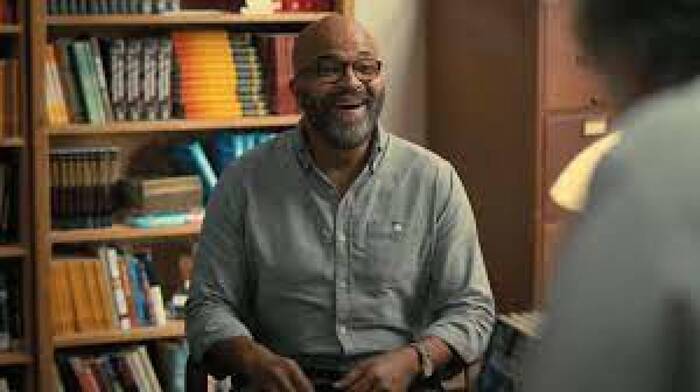Like Nabokov, Lucian Freud, Cindy Sherman or the master Philip Roth, whose biting, reprobative and liberating work underlies his, Bret Easton Ellis needs to place himself at the epicenter of his narrative by portraying himself to the point of exhaustion and making his biography as essential to his work as the air he breathes is for him. and not so much for exhibitionist appetite, for wanting to emulate Narcissus, as for the lenitive virtues that every introspective practice seems to carry with it. The fact is that the life of Ellis already peeked to that of Clay, the protagonist of that generational proclamation of the uninhibited eighties that was his debut film Less than zero and, in the manner of Nabokov in The True Life of Sebastian Knight, Ellis wanted to play to invent his own biography in Lunar Park, a twist to his narrative on the edge of self-parody and at the same time an extravagant artifact of which the playful schizophrenia of the author Ellis and the character Ellis stands out. After many years of silence, he published Blanco, an autobiography that reveals many of the keys to his style and the unwavering crusade against neo-puritanism and the censorship of political correctness, autobiographical non-fiction after his attempts at fictionalized autobiography.
The Destruction is a new exercise in fictional autobiography and a crime novel provided with the procacy, satire and that desire for the profusion of details that are the trademark of the house, and, if you will, it is also a detailed map of Los Angeles. Above all, however, it is an extraordinary Bildungsroman, a novel of learning that grafts the author's biography onto the story of the obsessive Bret, a budding storyteller who is writing Less Than Zero, and of the other vice-abducted wealthy teenagers hanging over parties and pools in Hockney and Los Angeles real estate until their lives as extras from The Great Gatsby. They tense up and their innocence is lost when a terrifying serial killer enters the scene. As if Bret Easton Ellis had wanted to sign his career by winking at his many readers when he entered with 17 years in a beautiful summer that an inaccurate and Californian replica of his Patrick Bateman of American Psycho darkened with terror and paranoia.
Ellis is a character in an Ellis novel in which the Trawler's atrocities he survived and the thriller atmosphere run parallel to the juicy memories, invented or not, of a young man who enjoys Brian de Palma and Kubrick's The Shining; with Bowie; Ragtime, by Doctorow, and Slaughterhouse Five, by Vonnegut, and before turning 20 he already wanted to be a writer. This exacerbates his unhealthy need to know and recognize himself by writing about his personality until he can understand it, investigating the evolution of his emotions and his aptitude for creative writing without the need for Tanqueray ("he had needed to take a distance of 40 years to finally start writing the book"), reflecting on his literary vocation, the process of creating the novel and his controversial career, contaminating once again the reality of his biography and the fiction of his novel until they become happily indiscernible. The "compulsive circles around himself" that Martin Amis spoke of referring to Philip Roth and his alter egos in his autobiography Experience might well apply to the author of American Psycho. And Ellis gloats, he has a great time confirming that yes, his work is him.
Ellis's seductive, magnetic style and masterful use of the first person generate such conviction for the reader that he finds no reason to distrust a narrator who claims to be the empirical author himself.
Portrait of the artist portraying himself and umpteenth portrait of the adolescent artist, agreed, but the serene maturity of the chronicler of the degenerate ennui of postmodernity has managed to create a truly splendid portrait. And this is how Bruce Springsteen's slogan "look at the art, not the artist", which Ellis comments on in his autobiography White – highly recommended reading for those who want to know Ellis better as an enfant terrible (in an imaginary photo he would appear with his contemporary Foster Wallace, the young Jonathan Franzen and the mature Amis) and access the petite histoire of the years in which The Destruction was conceived —, does not quite adapt to the case of our author, who wonders, to finish tangling the skein: "Should art always represent the truth of the artist and the artist himself? Well, you'd probably be disappointed." And to untangle it is answered: "The reason I am a writer is to present an aesthetic, things that are true without having to be real." Ellis's seductive, magnetic style and masterful use of the first person generate such conviction for the reader about what is said there that he finds no reason to distrust a narrator who claims to be the empirical author himself and, in any case, what the hell, nobody in their right mind abandons an absorbing reading to consult Wikipedia. It is the emotional scenery that unfolds before the reader that magnifies the suspense plot that sustains this hybrid and metafictional novel, without excess and stripped of banality, and the chronicles of Joan Didion, the cinema of Lynch, his first three novels or La contravida, by Roth, emerge, because Bret's sentimental education is a palimpsest.
The ferocious monologue of a masterful narrator -perhaps because he explains his life, that of Bret and that of Easton Ellis-, the incentive of autofiction and a prose as sharp as vertiginous make The Destruction a categorical novel that may very well force us to say from now on that American Psycho is a myth of contemporary narrative, but that Ellis is the author of The Wrecks.
Look for it in your bookstore
You can follow BABELIA on Facebook and Twitter, or sign up here to receive our weekly newsletter.
Subscribe to continue reading
Read without limits
Read more
I'm already a subscriber

/cloudfront-eu-central-1.images.arcpublishing.com/prisa/6IB23QYHRBC3LBOAKRGMU4TTD4.jpg)

/cloudfront-eu-central-1.images.arcpublishing.com/prisa/TY47FSPP2RB4BEVHHZRVRO4QLY.jpg)


/cloudfront-eu-central-1.images.arcpublishing.com/prisa/V22MUF36WRCMFMYVPT2JTWATUU.jpg)
/cloudfront-eu-central-1.images.arcpublishing.com/prisa/P4P3GJOGGRGGTMT2ZGCZQRX7SE.jpg)
/cloudfront-eu-central-1.images.arcpublishing.com/prisa/RM4UYORTLVHTRMI572ZI33NWZ4.jpg)
